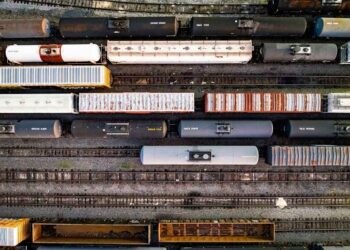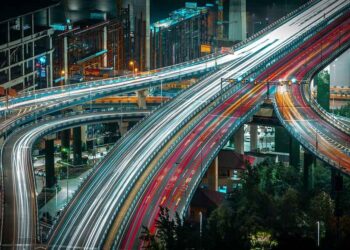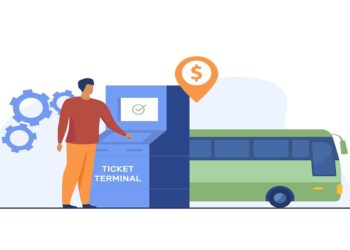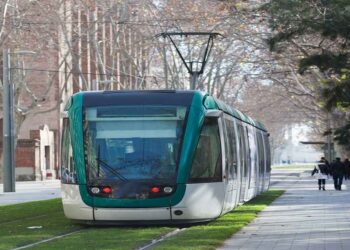Skoda Transportation received the TSI certificate from the EBC agency for both 109E3 locomotives and modern bilevel, high-speed MNE (Munich – Nuremberg Express) trains for Germany. The trains will start replacing the old InterCity units next year in spring. The full launch of the entire fleet of new trains is expected in June 2019.
Škoda Transportation received the TSI certificate from the EBC agency for both 109E3 locomotives and modern bilevel, high-speed MNE (Munich – Nuremberg Express) trains for Germany. The trains will start replacing the old InterCity units next year in spring. The full launch of the entire fleet of new trains is expected in June 2019.
“Škoda is therefore part of the world’s elite in high-speed railroad transport. By issuing this certificate, we celebrate the extraordinary success of the homologation process, which we expect to be finalized in the beginning of 2019 when the train should be finally approved. Completing this technically and financially challenging project is priority of the new board of the company under the new owner – investment and financial group PPF – and will in the future support our business plans on the European market,” says Petr Brzezina, Chairman and CEO of Škoda Transportation.
Škoda Transportation has manufactured six modern, high-capacity bilevel trains, including six locomotives, for the German operator Deutsche Bahn Regio. These push-pull trains are designed for operation on the most important Bavarian railways Nuremberg – Ingolstadt – Munich. The trains can cover the distance between Munich and Nuremberg in an hour and 45 minutes, so they will be only 30 minutes slower than the ICE high-speed trains. The train was successfully presented at the Innotrans international transport trade fair in Berlin this September.
“The supply of the trains has been postponed by more than two years. The main reason for the delay was the challenging development of pressure-tight wagons, as well as tests of whole trains, which will be in close proximity to ICE trains moving at a speed of 300 km/h in normal operatoin. Now the project for high-speed, bilevel trains for DB Regio users is almost finished, and the first passengers will be riding in Škoda trains in the spring of next year, ” adds Zdeněk Majer, Vice President of Sales in Škoda Transportation.
The trains consist of a control car, end wagon, four wagons and the Škoda Emil Zátopek 109E3 locomotive. They are designed for a maximum speed of 200 km/h and will be operated at a maximum speed of 190 km/h.
Škoda Transportation is the first supplier to Germany that offers a barrier-free entrance from the platform at a height of 760 mm. The push-pull train naturally meets the strictest German and European standards. The units are equipped with a special pressure-tight cabin that allows it to pass other trains in tunnels at high speeds, contributing to comfortable and undisturbed travel.
The interior of the train is classically divided into first and second class, and there is also a new children’s section. As requested by the customer, the train contains 676 seats. Each train also offers 37 places for bicycles and a few places for people with reduced mobility, including places for people accompanying them. The trains also offer barrier-free entry, multifunctional pram and bicycle areas, wi-fi and, last but not least, significantly improved passenger comfort.


































